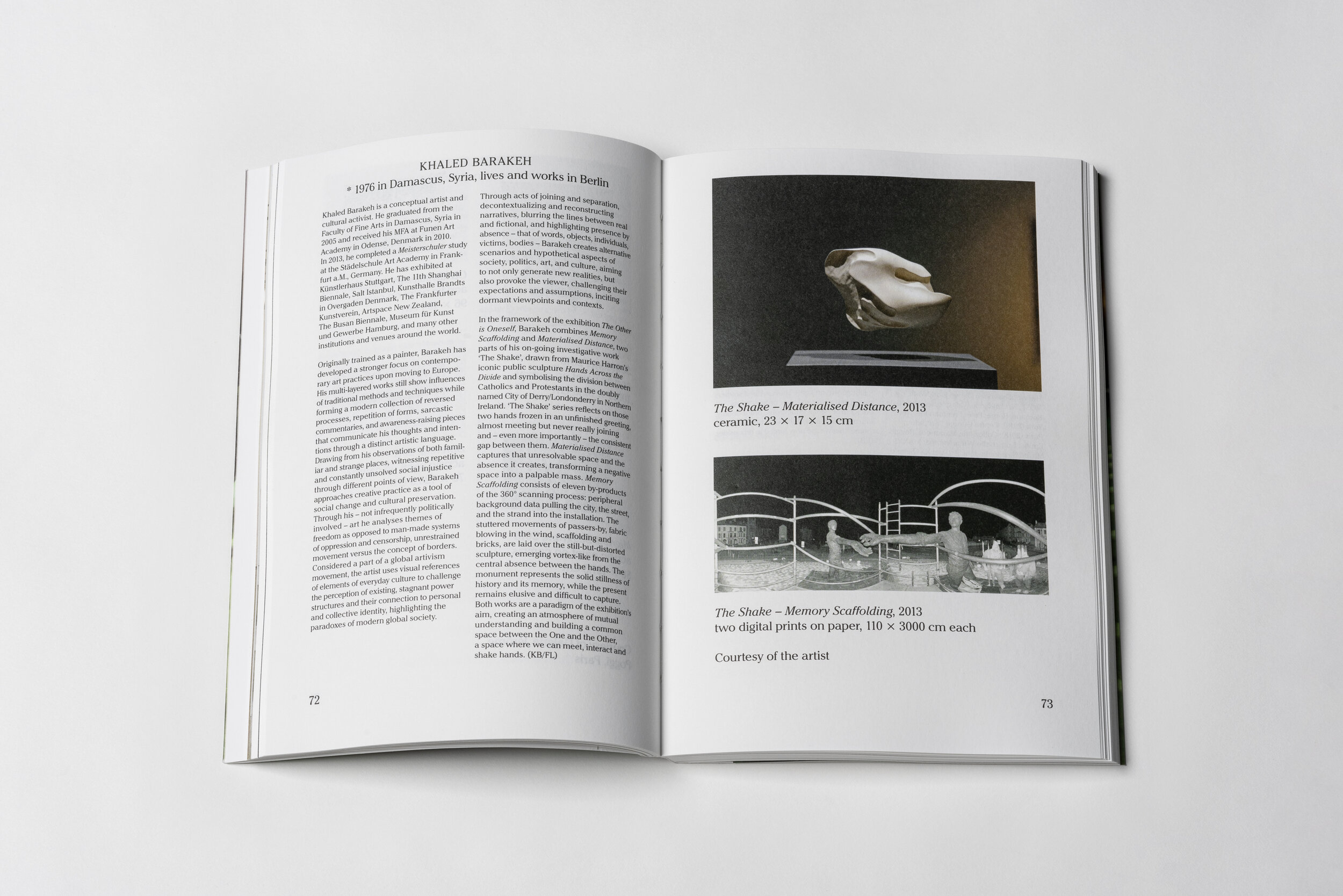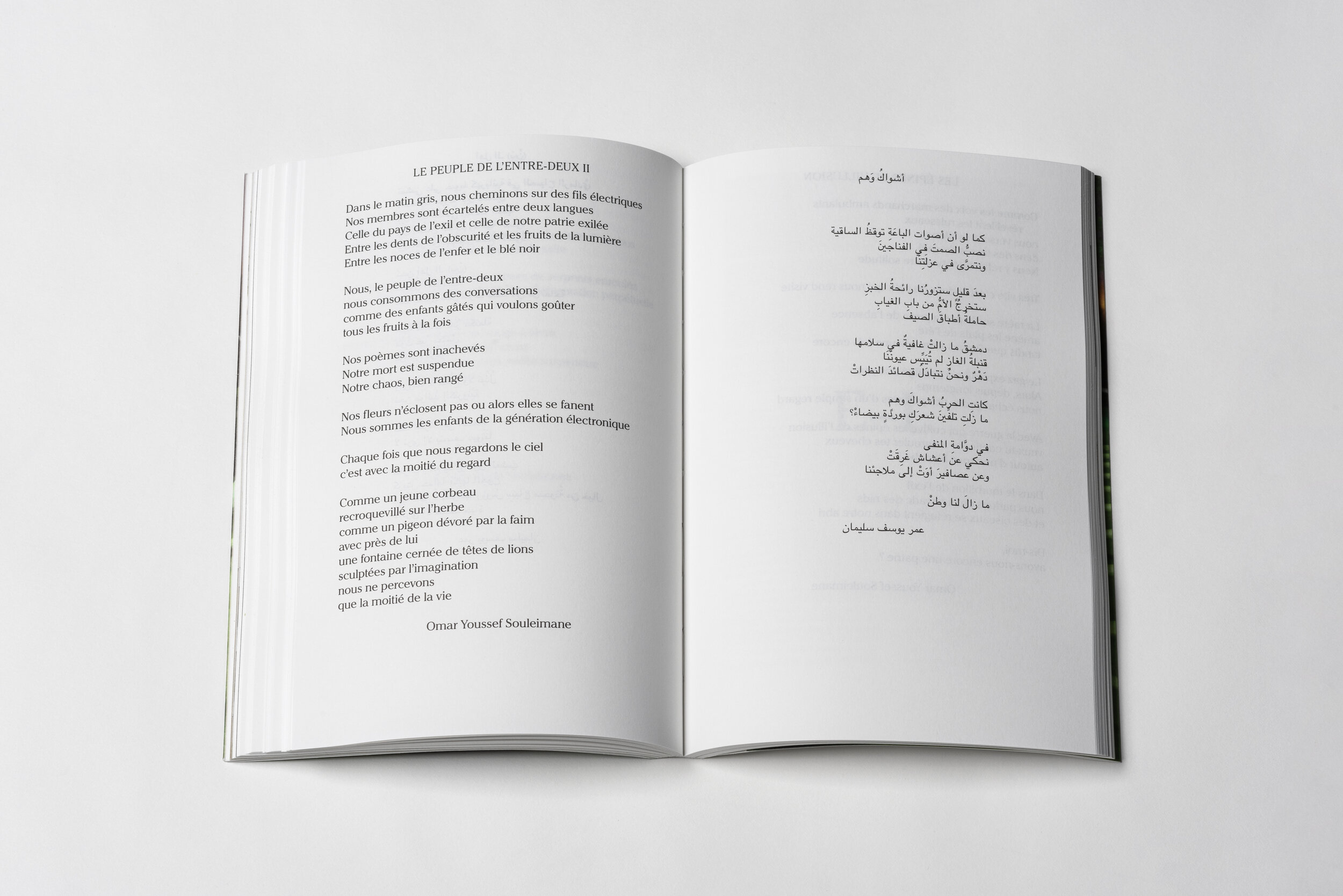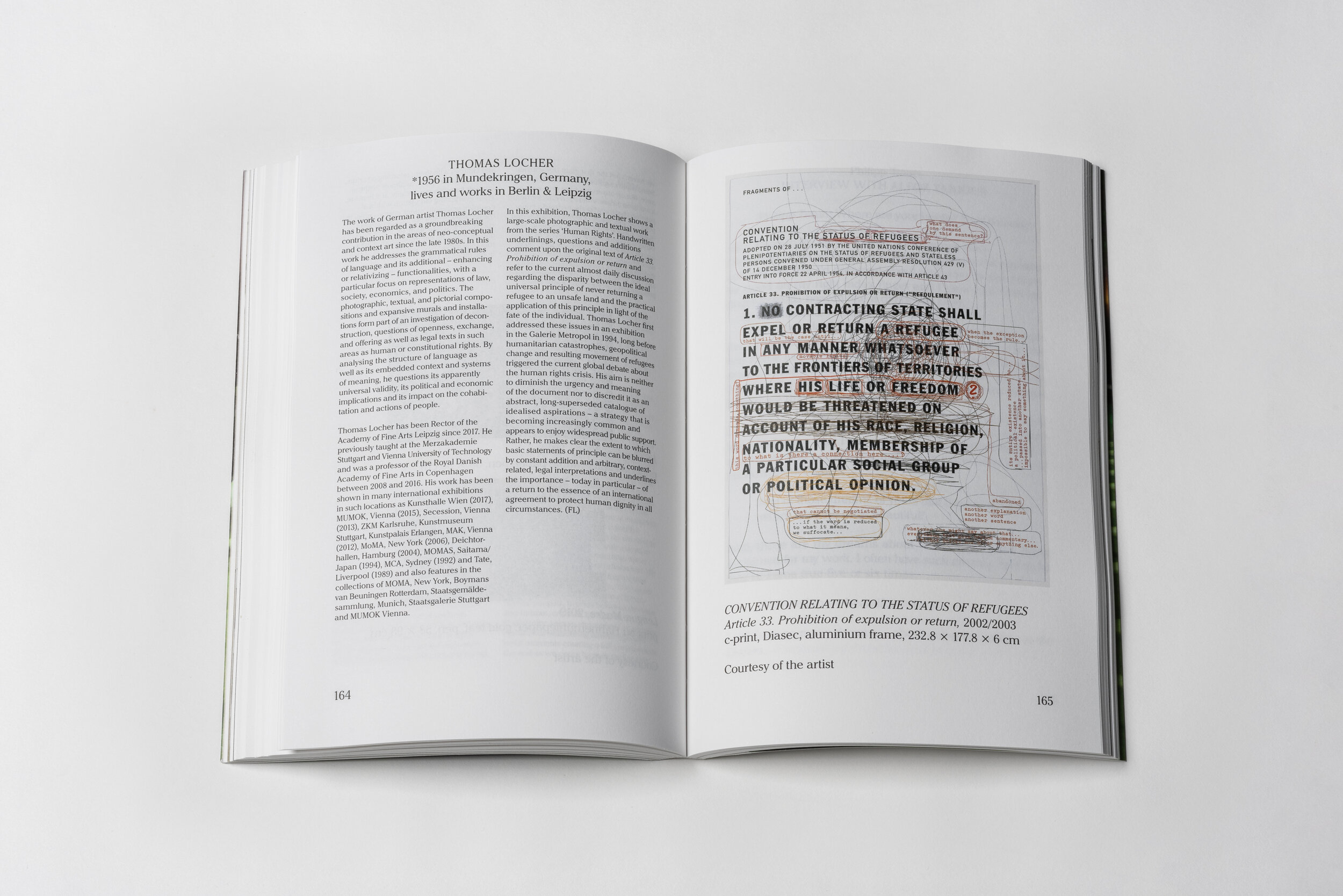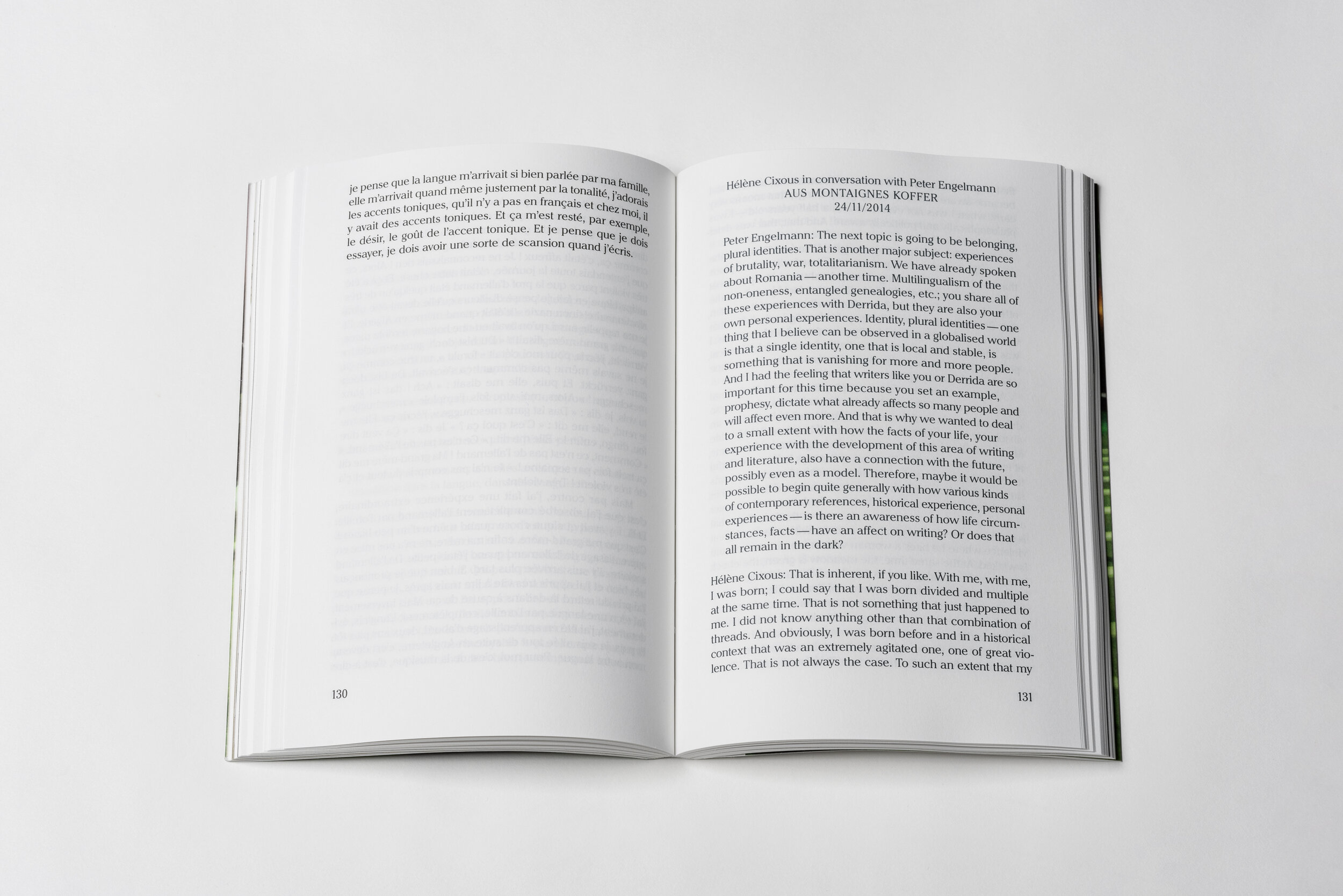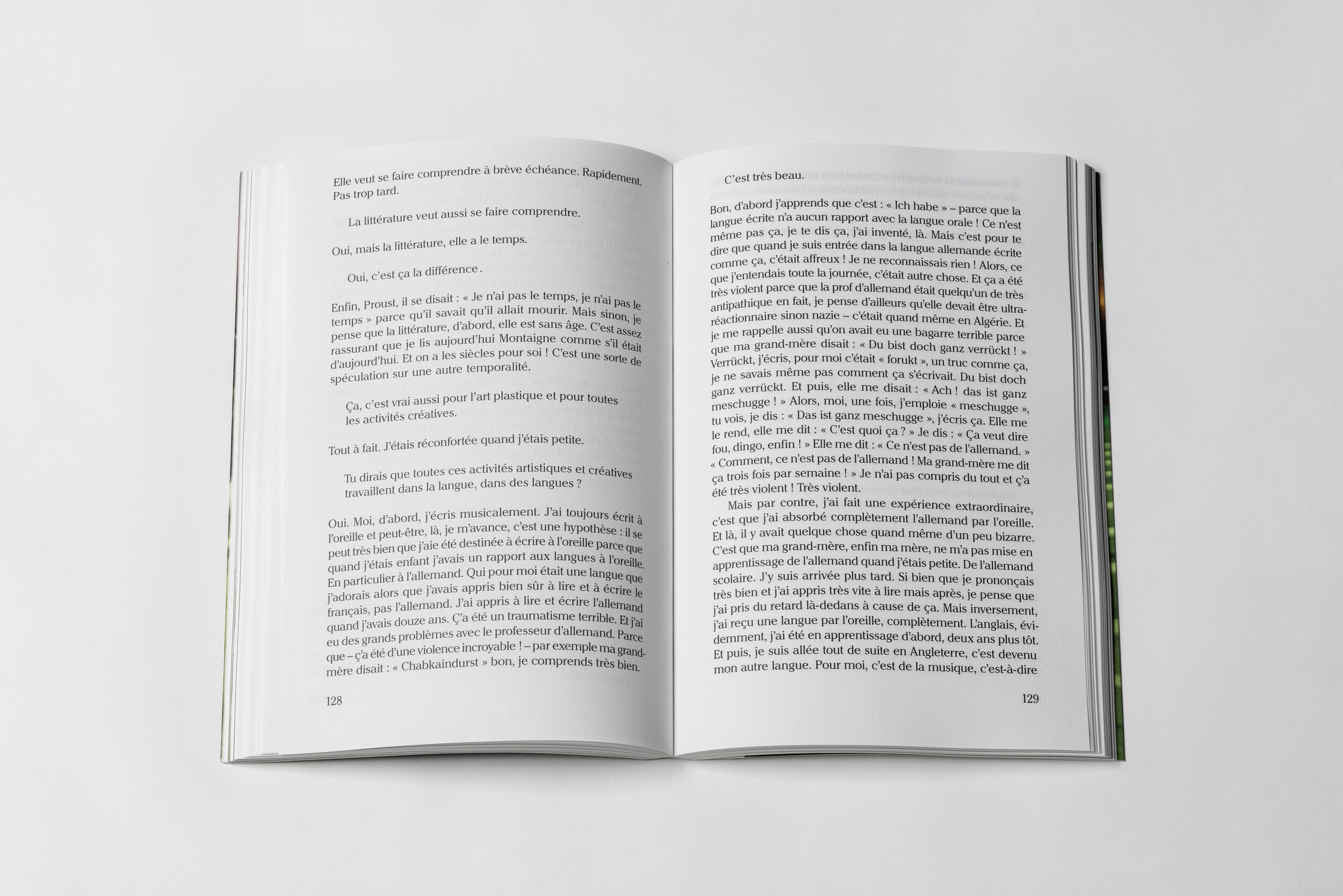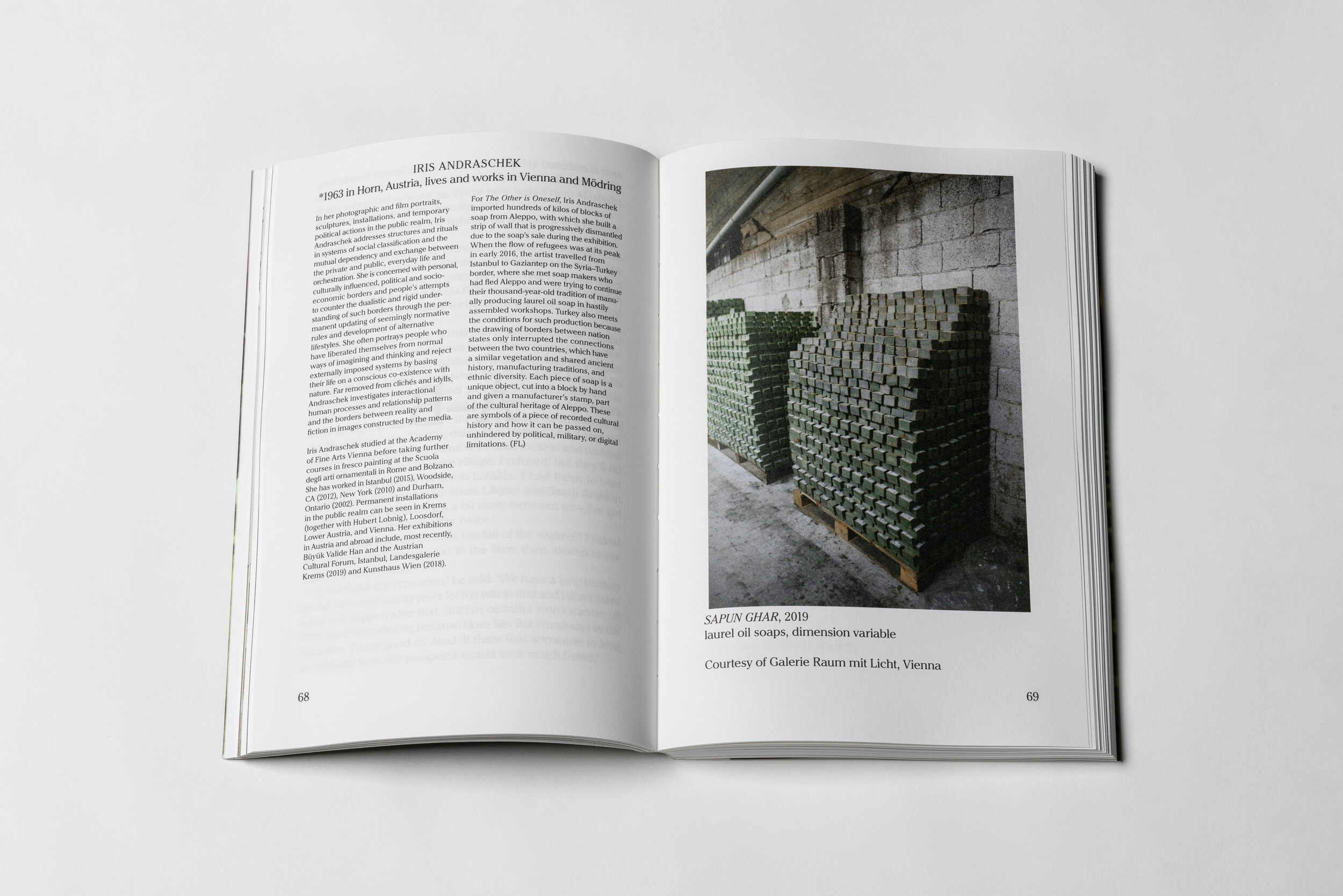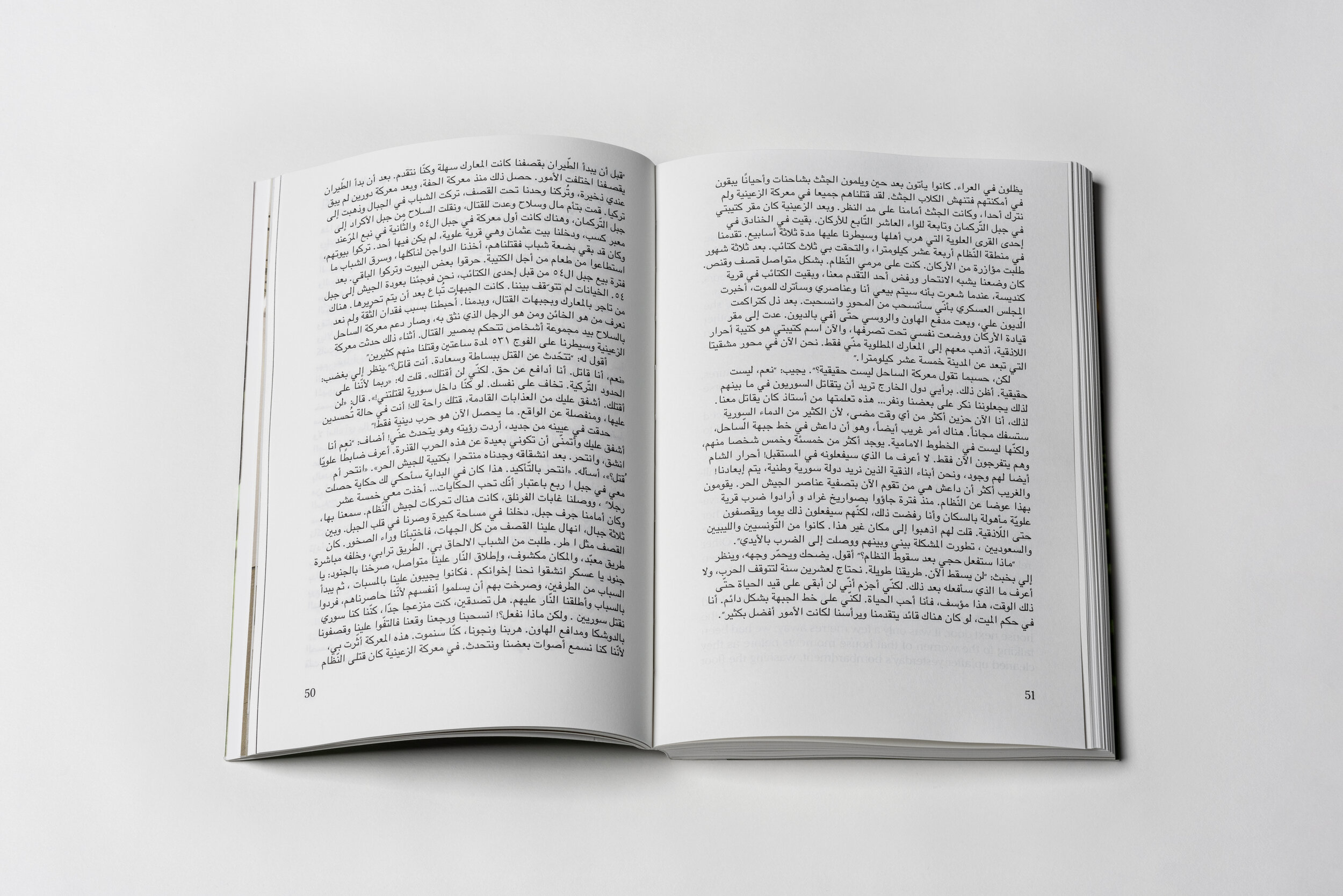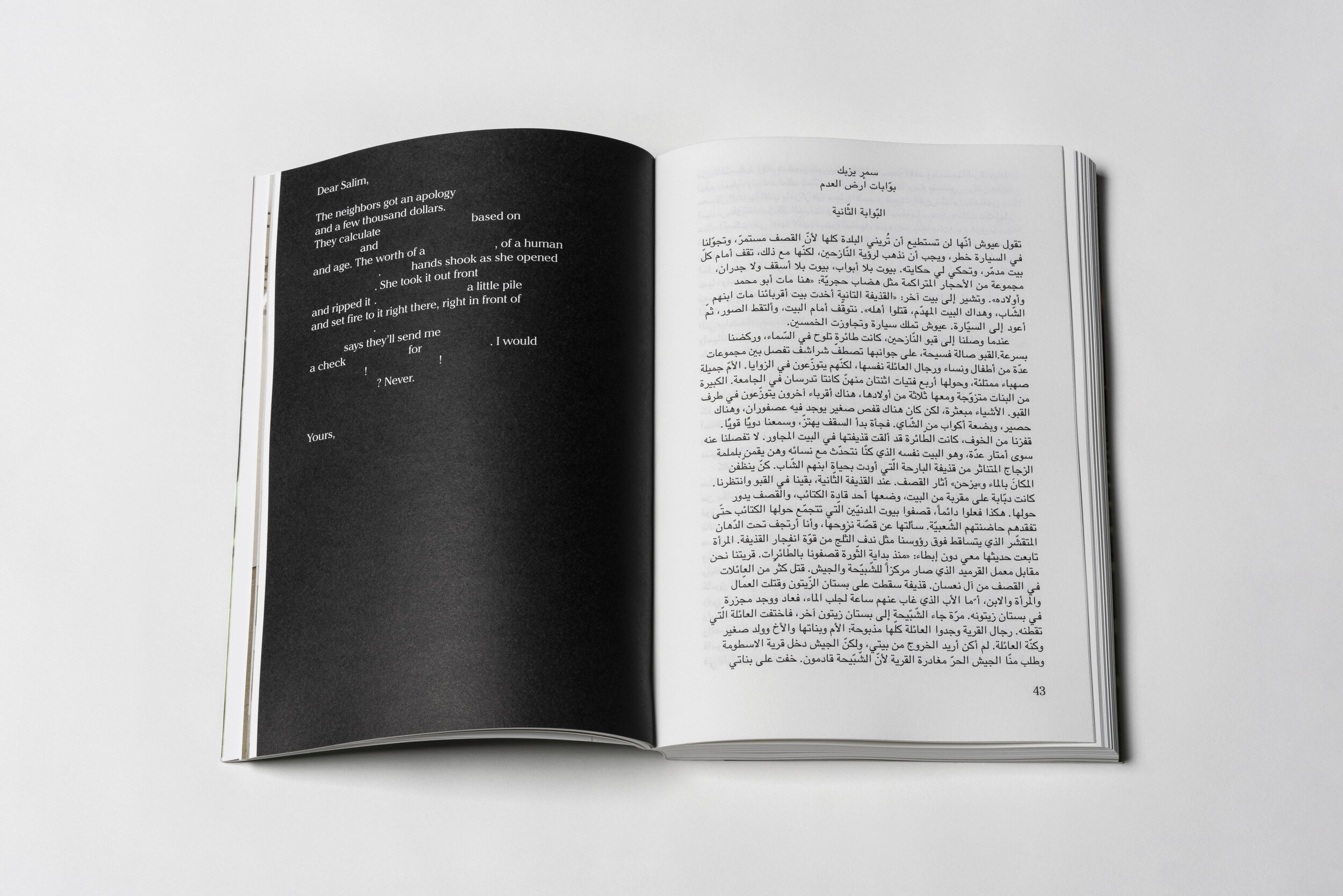GIFT SHOP
THE OTHER IS ONESELF
THE BOOK
Writers:
Hélène Cixous
Barbara Coudenhove- Kalergi
Jacques Derrida
Marianne Hirsch
Solmaz Sharif
Omar Youssef Souleimane
Samar Yazbek
Critical Essay:
Fiona Liewehr
Interviews:
Philipp Traun
This publication brings together literary testimonies, interviews, factual reports and poetic, philosophical and socio-critical writings on this topic and sheds light on the complexity of the phenomenon of migration and its effects on individuals and society with the help of very personal perspectives from different periods and places. All texts are published in their original language and an English translation.
330 pages /softcover €25,— (plus postage)
All of the proceeds go to support the Hilfswerk International´s projects in Lebanon, if bought at the exhibition, if ordered by mail a part goes to the publisher.
Available at SALON FÜR KUNSTBUCH in Vienna or order via ☛ E-mail.
SYRIAN CHAIRS
Sébastien de Ganay
In 2015 Sébastien de Ganay developed a lounge chair that could be produced anywhere: cut four pieces out of simple plywood on a local CNC machine - in order to make its carbon trace as low as possible - and assemble it in a minute with no screws or glue. For this exhibition he has produced a series of chairs upon which the names of destroyed Syrian cities have been printed in the colours of the national flag and created a modular setting for communication in which such questions could be addressed as how cultural heritage and memories can be preserved and handed on to future generations.
Syrian Chairs, 2019, plywood, print, felt,
each 75.5 × 51 × 68 cm, unique pieces
ALEPPO حلب, AS-SUWAYDA السويداء, BANIYAS بانياس, DAMASCUS دمشق, DARAA درعا, DEIR ez-ZOR دير الزور, HAMA حماة, HOMS حمص, IDLIB إدلب, JABLEH جبلة, KOBANÊ كوباني, LATTAKIA اللاذقية, PALMYRA تدمر, RAQQA الرقة, SALAMIYAH سلمية, TABAKA الطبقة, TARTOUS طرطوس
€900,— each;
The proceeds of the sale of these works go to “THE OTHER IS ONESELF, Association for the Promotion of Social Progress with the Means of Art” to help finance the project. The works come signed by the artist and with a certificate of authenticity.
Available at the exhibtion or order via ☛ E-mail.
Sapun Ghar -Aleppo Soaps
Iris Andraschek
Aleppo soaps of the highest quality
For The Other is Oneself Iris Andraschek imported hundreds of kilos of blocks of soap from Aleppo, with which she built a strip of wall that is progressively dismantled due to the soap’s sale during the exhibition.
When the flow of refugees was at its peak in early 2016, the artist travelled from Istanbul to Gaziantep on the Syria–Turkey border, where she met soap makers who had fled Aleppo and were trying to continue their thousand-year-old tradition of manually producing laurel oil soap in hastily assembled workshops. Turkey also meets the conditions for such production because the drawing of borders between nation states only interrupted the connections between the two countries, which have a similar vegetation and shared ancient history, manufacturing tradi- tions, and ethnic diversity. Each piece of soap is a unique object, cut into a block by hand and given a manufacturer’s stamp, part of the cultural heritage of Aleppo. These are symbols of a piece of recorded cultural history and how it can be passed on, unhindered by political, military, or digital limitations.
The Aleppo soap, which the artist imports from the Syrian-Turkish border region, is documented by her in a film about its production as well as processed into city plans and ornamental patterns in installations of olfactory objects. For the THE OTHER IS ONESELF, Andraschek makes Sapun Ghar accessible as the commodity it is. With this distribution, she not only pays tribute to a centuries-old tradition, but also to survival in precarious conditions.
Natural product according to centuries-old tradition
The handmade soap from laurel oil, olive oil, soda and water is a valuable, legendary natural product that was first mentioned 1,000 years before Christ on Assyrian stone tablets. The soaps are produced today by Syrian soap settler families who fled in 2012 near the town of Gaziantep (Turkey). Where climatic conditions and the occurrence of laurel and olives make the continuation of soap production possible, the old knowledge is continued after the flight according to centuries-old tradition and preserved in exile as a cultural asset that creates identity.
The archaic-looking blocks, initially green and then sand-coloured, seem to date from a bygone era.
With their intertwined stamps of Arabic characters, they remind us of the old homeland of Aleppo, which today is almost completely destroyed, and they are proof of our own survival. The resumption of soap making means to shake off the paralysis of the war and to return to the vital cycle of work in seasonal production, distribution and acquisition. In the Kunsthaus shop, Andraschek artfully wraps the soap in old city maps of Aleppo and sells it as an "edition" with hopefully infinite circulation.
Sapun Ghar is a purely vegetable product, free of chemical additives.
The gently scented soap has a refreshing, moisturising and self-regulating effect. It serves as a cleansing and care product for skin and hair, as a washing agent for baby clothes, for shaving, to combat dandruff and is also ideal for hypersensitive skin, allergies and neurodermatitis. The pH value of this soap is between 8 and 9 and stimulates the body to excrete toxins and acids through the skin.
The 200 g soaps (5 x 8 x 6cm) come wrapped in a map of Aleppo and can be purchased for €25 (plus postage).
4/5 of the proceeds go to support the Hilfswerk International´s Refugee projects in Lebanon.
Available at the exhibtion or order via ☛ E-mail.


